Leading change
Radical African scholars are not in African universities today
“The day the African university is truly transformed, is when it has the ability to attract radical African scholars back to African institutions. That’s the day we will be fully transformed and this the battle we should be grappling with,” said Prof Adam Habib, Vice-Chancellor of University of the Witwatersrand. He was speaking at opening of an international conference hosted by Unisa’s Change Management Unit on behalf of the Vice-Chancellor’s Office, in partnership with the Archie Mafeje Research Institute for Applied Social Policy.
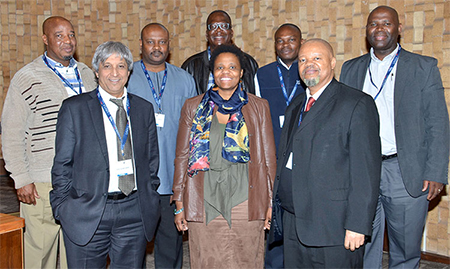
Pictured at the opening of the conference, back: Dr Malekutu Bopape, (Director: Culture, Change Management Unit, Unisa), Prof Vuyisile Msila (Professor and Director, Leadership in Higher Education: Change Management Unit, Unisa), Prof Sabelo Ndlovu-Gatsheni (Director: Scholarship, Change Management Unit, Unisa), Dr Busani Mpofu (Archie Mafeje Research Institute), Dr Somadoda Fikeni (Advisor to the Unisa Principal and Vice-Chancellor and Director of VC projects),and front: Prof Adam Habib (Vice-Chancellor of University of the Witwatersrand), Prof Grace Khunou (Associate Professor at the University of Johannesburg), and Prof Mandla Makhanya (Principal and Vice-Chancellor, Unisa).
According to Habib, the African institution and experience of the last 40 years, has been the explicit destruction of the African university by thoughtless action by government. “We destroyed universities and we destroyed generations. Talented African students today, if they get the first opportunity, are gone to the United States or Western Europe. Moreover, 50 or 60% never come back. The most radical scholars on the African continent are not in African universities today. They are sitting in Columbia, Michigan and all these other places in the US and Western Europe,” he said.
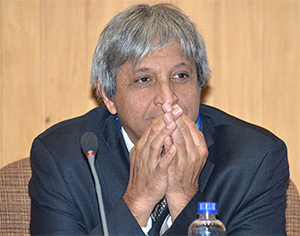
Habib deep in thought after explaining that the African university will truly be transformed when it has the ability to attract radical African scholars back to African institutions.
Change is uncomfortable
Habib pointed out that change is uncomfortable but that discomfort must be for everybody. “It must be uncomfortable for those who occupy the academy, it must be uncomfortable for the institutional beaurocrats, but it must be as uncomfortable for the activists promoting decoloniality. Because if they think that they are the fountain of all wisdom, then we are in serious trouble. Because nobody, in this context, is the fountain of all wisdom.”
Does Habib think transformation is important? He absolutely does. “I think transformation is about addressing historical disparities of our past in terms of racial, gender and ethnicity. I think it entails enabling access, and quality exit at both staff and student level. But it also reflects, and needs to reflect, on how to create the right balance between global knowledge competitively, and contextual knowledge, that is relevant to our circumstances,” he explained.
Adding to the conversation on change being uncomfortable, Prof Grace Khunou, Associate Professor at the University of Johannesburg said that university managers want nothing to do with the angry black woman. “Many will find ways to erase her, and many are not able to deal with the discomfort of having what they label ‘a loose canon’ running around in their campuses,” she said. Khunou believes this is because many university managers are unable to operate outside of their historical, racist and patriarchal, script.
The angry black woman is a ticking time bomb
The question Khunou poses is whether we will ever achieve anything from comfort? According to her, university managers fail to recognise that their dismissive responses to the angry black woman is a ticking time bomb. “Many black women are unhappy, and growing angrier and angrier, at the powers that be in South Africa’s higher education landscape.”
Khunou explained that anger is an indicator that one is strongly invested in an issue. “Black women are angry because they are invested in making the academy their own. They are invested in making this higher education landscape work, to maintain and support and change social problems in their societies. Black women bring their children to these universities, therefore their anger is a beautiful indicator that they are ready for radical transformation. It is also an indicator that they are being radically transformed themselves - not dealing with them with care is indeed, a ticking time bomb,” she said.
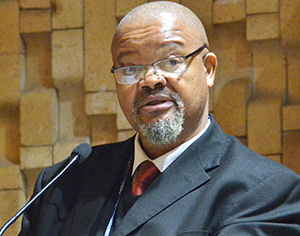
Prof Mandla Makhanya (Principal and Vice-Chancellor, Unisa) explained that if we are to address the call for the decolonisation of universities, we have to move from widening access to insisting on social justice, and ultimately to ensuring empowerment for human potential. “The re-humanisation of higher education must therefore be our major campaign. Yet we all know that change is not always predictable. Hence, we speak of its dynamism,” he said.
The conference, which started on 16 August 2017 and will conclude today, took place under the theme ‘The Dynamics of Changing Higher Education in the Global South’. This conference seeks to discuss the state of higher education in the Global South and examine the historical and contemporary changes that have implications for the very idea of the university, knowledge, curriculum, university institutional cultures, funding of higher education, teaching, learning and leadership. These are pertinent issues which are at the centre of the discourses and practices of change in higher education.
*By Kirosha Naicker
Publish date: 2017-08-17 00:00:00.0


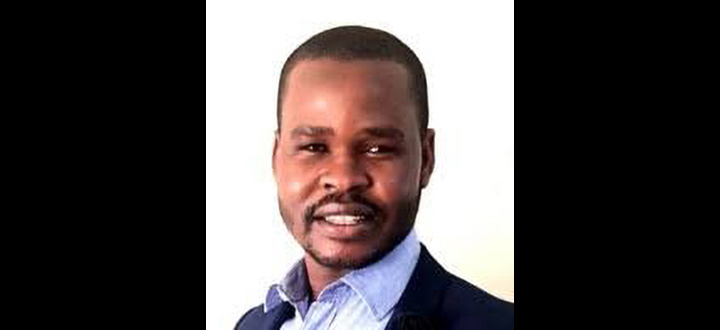 Mental health among men in the workplace needs more attention
Mental health among men in the workplace needs more attention
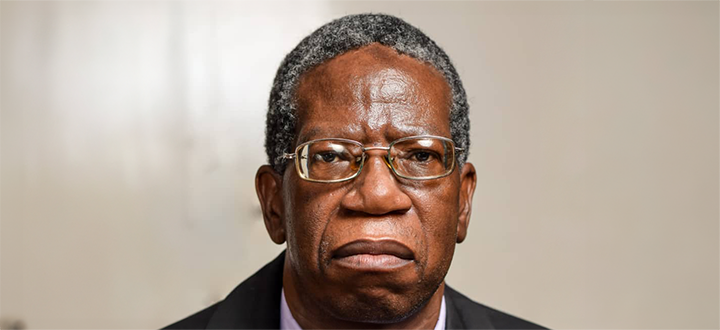 "I owe everything to Unisa and my late supervisor's priceless mentoring"
"I owe everything to Unisa and my late supervisor's priceless mentoring"
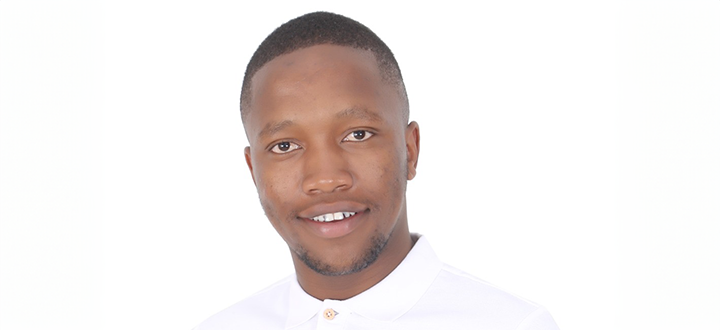 Majikijela - a queer scholar raising homosexuality awareness through his work
Majikijela - a queer scholar raising homosexuality awareness through his work
 Unisa and Inqaba Biotec unveil groundbreaking DNA research platform
Unisa and Inqaba Biotec unveil groundbreaking DNA research platform
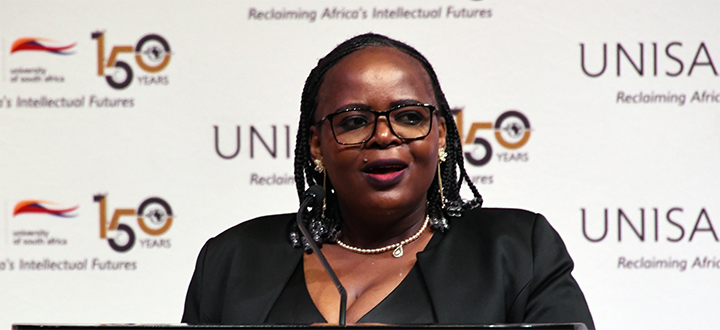 College of Law appoints esteemed scholar as executive dean
College of Law appoints esteemed scholar as executive dean